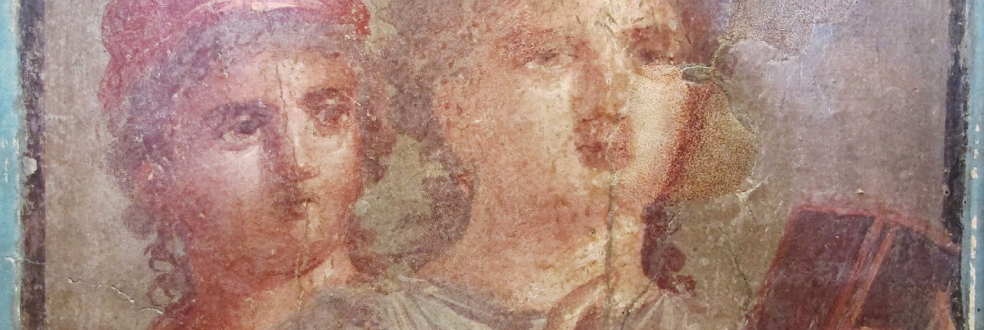Books Known Only by Title

2022
13
January
- 03
March
Books Known Only by Title
This semester, we are presenting a monthly Zoom webinar series, held on Wednesday evenings.
Abstract
Books are more than just text containers. Like ships at sea, books bear a precious cargo through space and time. Sometimes, as with "books known only by title," we can only glimpse them from afar. Other times, we receive the cargo, worn and altered by its long journey.
As vessels of knowledge, books navigate the relationships between bodies, time, and space. This panel examines ancient conceptions of moving knowledge, with attention to how books can enable or resist its transmission. Panelists will consider narratives not only of stability and continuity, but also of invention, uncertainty, and disruption. How did the ancients conceive of the transmission of knowledge? What happens when knowledge moves genealogically as an inheritance or birthright? And how do books, real or imagined, function in these narratives of transmission?
2022
13
January
- 03
March
Books Known Only by Title
Past segments
Where are the Books of Job’s Daughters? Mapping the Shadow Libraries of Antiquity
Where are the Books of Job’s Daughters? Mapping the Shadow Libraries of Antiquity
Abstract
Books are more than just text containers. Like ships at sea, books bear a precious cargo through space and time. Sometimes, as with "books known only by title," we can only glimpse them from afar. Other times, we receive the cargo, worn and altered by its long journey. As vessels of knowledge, books navigate the relationships between bodies, time, and space. This panel examines ancient conceptions of moving knowledge, with attention to how books can enable or resist its transmission. Panelists will consider narratives not only of stability and continuity, but also of invention, uncertainty, and disruption. How did the ancients conceive of the transmission of knowledge? What happens when knowledge moves genealogically as an inheritance or birthright? And how do books, real or imagined, function in these narratives of transmission?
Moving Knowledge: Transmission, Genealogies and Disruptions
Moving Knowledge: Transmission, Genealogies and Disruptions
Abstract
Books are more than just text containers. Like ships at sea, books bear a precious cargo through space and time. Sometimes, as with "books known only by title," we can only glimpse them from afar. Other times, we receive the cargo, worn and altered by its long journey.
As vessels of knowledge, books navigate the relationships between bodies, time, and space. This panel examines ancient conceptions of moving knowledge, with attention to how books can enable or resist its transmission. Panelists will consider narratives not only of stability and continuity, but also of invention, uncertainty, and disruption. How did the ancients conceive of the transmission of knowledge? What happens when knowledge moves genealogically as an inheritance or birthright? And how do books, real or imagined, function in these narratives of transmission?
Gendered Book and Reading Cultures
Gendered Book and Reading Cultures
Abstract
What can we know about ancient book and reading cultures? How can gender theories and other critical approaches help us ask new questions of ancient texts, whether we focus on their contents, their reception history, or their scholarly discussion? This panel will employ a variety of perspectives to search for alternate ways of thinking about book cultures, with an eye for gendered power structures in portrayals of authorship, attribution, preservation, and transmission. We will critically examine how discourses of masculinity have influenced debates in modern scholarship about books, and how gender has shaped our ideas about the first millennium library. In light of recent studies on the “sociology of reading” in antiquity, we will explore what roles are ascribed to texts and interpretive communities in literary portrayals such as early Christian gospels and apologetic works.
The panel will explore the many questions that arise from these subjects. On what grounds do we know anything about who wrote, copied, read, or heard the texts we study? If books are gendered male, as is the authoritative line of textual transmission, how can we conceptualize exceptions from these structures? What are the implications of claiming female authorship of various ancient books? In what way do women as historical persons, who contributed to book production, transmission and reception, relate to the female characters constructed in texts? Female characters tend to be associated with contested, apocryphal or heretic books — often books known only by title — but this is not always the case. What can the examples tell? In order to identify gaps in the current discourse, this panel will pay attention to women but think beyond gender binaries, drawing from intersectionality, masculinity theory, queer studies, and postcolonial perspectives. These tools and beyond can help the academy critically examine what shaped the imagination of the first millennium library.